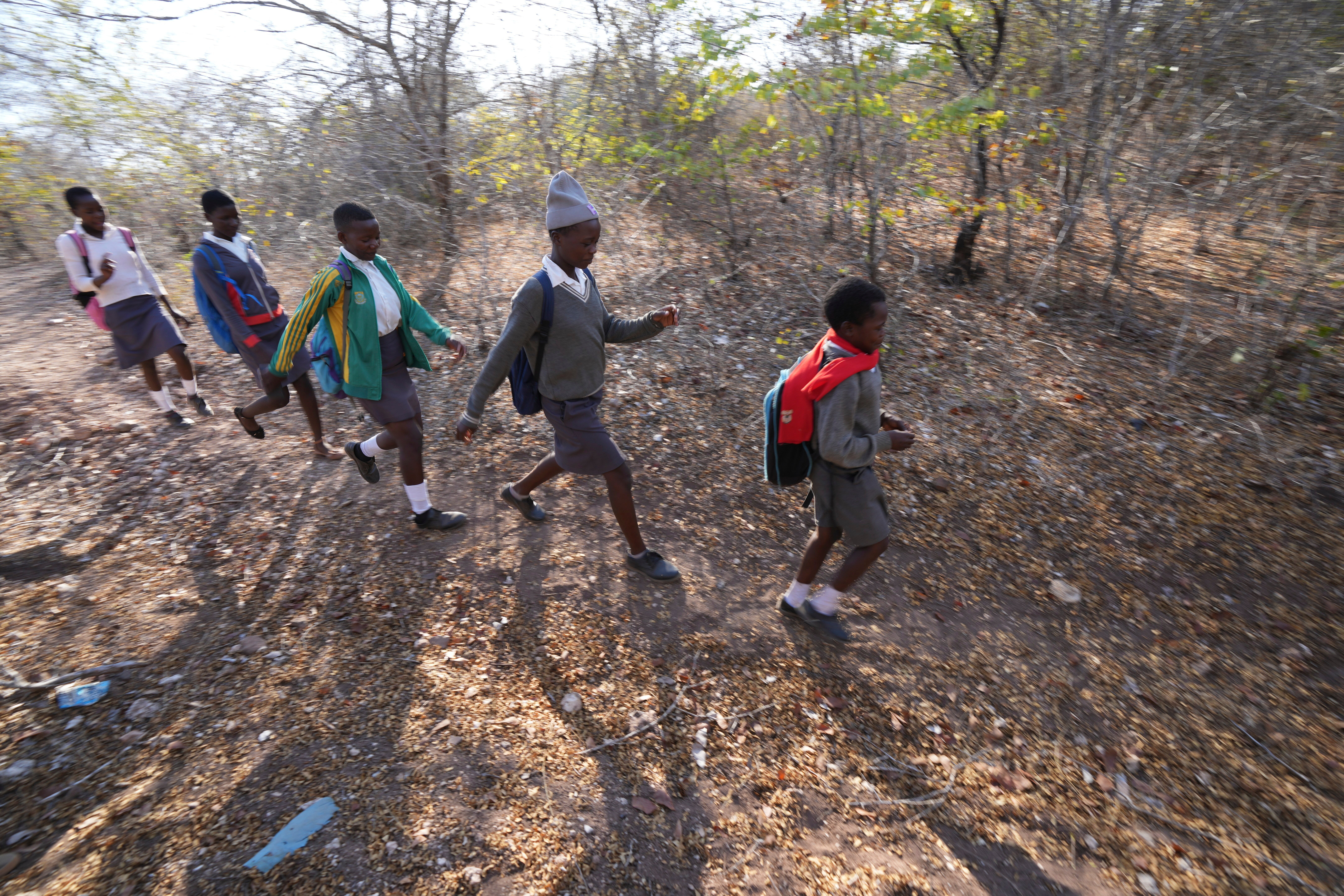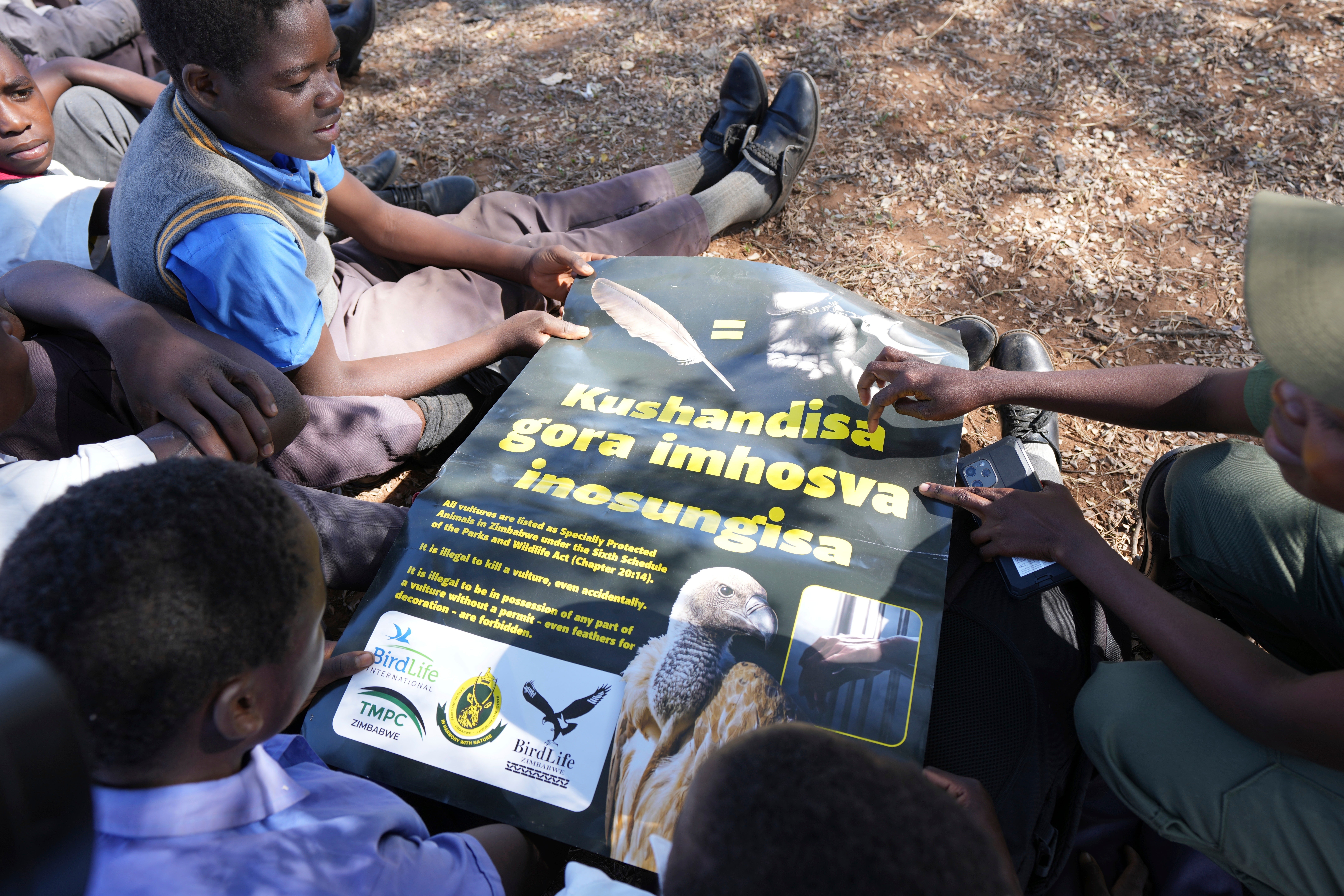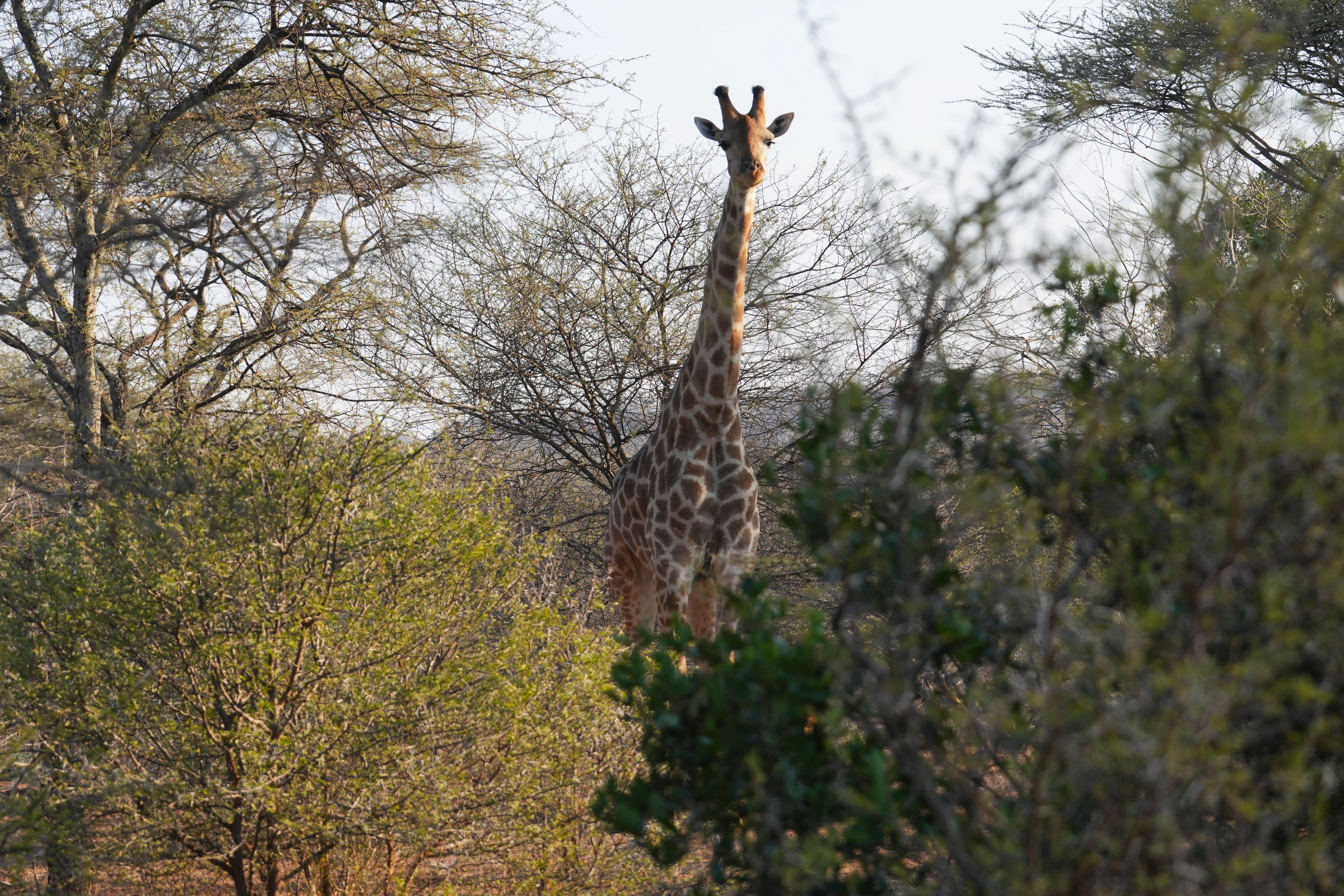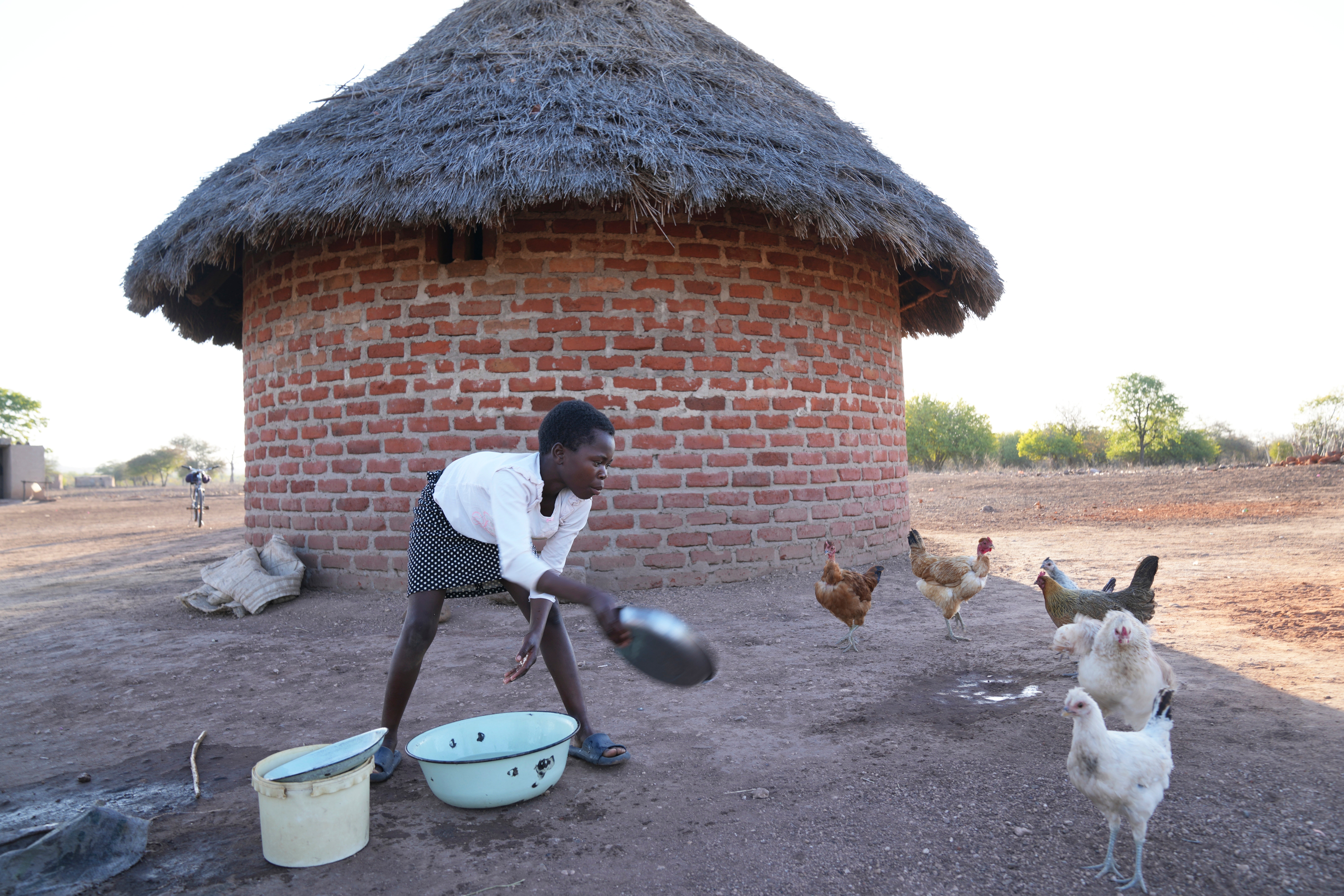Zimbabwe schoolchildren face threats from animals as they walk to school
In Zimbabwe, increased wildlife activity near people mean that children are at risk of attacks by animals while walking long distances to and from school

On the impoverished edges of a conservancy that protects wildlife in southeastern Zimbabwe, 14-year-old Esther Bote wakes up at dawn to a practiced daily routine.
She cleans the house, lights the fire, cooks, bathes and gets into her neat grey and white school uniform. Then it’s time for what she considers the most perilous chore: the 5-kilometer (3-mile) walk to school through bush paths and forests where dangerous animals might lurk.
The teenager has been living with such threats for some time now but there is no getting used to it. Children as young as 5, some held by the hand by slightly older peers or siblings, briskly walk in thick forests to school and then back home.
“Sometimes we see animal footprints. We see their footprints and can tell that the elephants are still around,” she told The Associated Press from her home, where she stays with her elderly grandparents.
In this humid, densely forested area in a semi-arid Zimbabwean district, repeated droughts, juiced by the naturally occurring El Nino weather phenomenon and human-caused climate change, have led to food and water shortages, leaving people and animals to compete for resources. Wildlife is getting dangerously close to human populations, and children are having to learn how they can live in this new reality without putting themselves at too much risk. To adapt, schoolchildren are now taking basic lessons in animal behavior.

On a recent day in July, when Esther and her friends spotted elephant footprints on the way from school, they reported it to a wildlife ranger. The animals had cut across a farming field and bush path that they regularly use to and from school. A few days prior, a child was severely injured from a crocodile attack.
Although no fatalities have been reported, Esther and her friends are still cautious.
“We usually walk in groups to feel safer,” said Esther.
Since last year, the privately-owned Save Valley Conservancy and the country’s parks agency have been running a program for school-age children on how to recognize danger signs and how to coexist with wildlife. Dozens of students such as Esther are now able to identify different wildlife footprints, animal sounds and can read wind direction by the blowing sand and know how and when to take cover.
“The person who is affected mostly is the kid. It’s the kid who goes to school, it’s the kid who goes to fetch water, it’s the kid who goes to fetch firewood,” said Dingani Masuku, community liaison manager for Save Valley Conservancy. “That’s why we are targeting schools so that they can know how animals behave, what to do with the animals."

He said they are trying to teach “a sense of ownership in the kids” so that they "don’t see the animal as an adversary, but they see it as something beneficial to the community, something which should be respected.”
On a recent sunny day, over two dozen children sat outside on dusty ground in searing heat for one of the sessions at Chiyambiro Secondary School. An 18-year-old who recently left school and is now part of a new corps of young women rangers from the community was teaching them animal behavior and how to protect themselves.
“Don’t approach an animal. If it’s a lion, it’s looking for food. That’s why it’s in the community. It is looking for cheap, easy prey, and you could be the easy prey,” she said, wearing military-type green fatigues. Some of the children said they travel up to 15 kilometers (9 miles) to school, and are forced to walk before daybreak when animals such as hyenas would still be on the prowl.
An official from the national parks agency talked about the benefits of wildlife to the community such as tourism. He pointed to the recently recruited women rangers as an example of how wildlife can create employment for locals. He encouraged them to take the message home to their parents — many who view wild animals as either enemies or a source of food.
Alphonce Chimangaisu, the School Development Committee chairperson at Chiyambiro Secondary School, said parents hoped the initiative would make children safer.
“Some parents have stopped their children from going to school because they don’t know what might happen,” he said.
Although there is no concrete data yet on the effectiveness of the initiative, Chimangaisu said the school has been using it to convince some previously reluctant parents to change their attitudes. Many agree with the training but still ask for concessions, such as the school allowing their children to arrive later for class, he said.

School authorities in affected rural areas are often forced to delay the start of classes and end them early to allow affected children to walk to and from school during daylight when wild animals are unlikely to be roaming around communities, said Obert Masaraure, president of the Amalgamated Rural Teachers Union of Zimbabwe.
“We have reports of learners who have completely withdrawn from school fearing for their lives,” he said, adding that teachers who live far from schools are also increasingly not turning up for work. “These challenges are compounding other existing vulnerabilities for rural learners further denying them access to quality education.”
The country’s parks agency is now pushing to initiate animal behavior and conservation training at schools countrywide in areas where people are increasingly being forced to co-exist with wild animals that make regular forays into communities for food and water due to climate change-related droughts, said Tinashe Farawo, the spokesman for the Zimbabwe National Parks and Wildlife Management Authority.
Aside from learning how to keep safe, schoolchildren can be a useful way to deliver the message home, he said.
“We have established environmental clubs at many schools where we raise awareness and education,” added Farawo. “When children are taught about these dangers and animal behavior, they also go home and teach their parents. We have found that it’s easier for parents to listen when their children speak.”
He said the conflict is likely to worsen due to increased frequencies of droughts, noting that the parks agency received between 3,000 and 4,000 distress calls from communities battling confrontations with wildlife in the last three years, compared to about 900 calls in 2018.
For Esther, although the training has not eliminated the risk, she said it could come in handy when danger arises.
“It helps, we now know a lot of things about animals that we didn’t know before,” she said, adding that as long as the animals are still there, she won't be able to fully enjoy school.
Bookmark popover
Removed from bookmarks